
The Gateway to the Sundarbans: Khulna
Khulna, the third-largest city in Bangladesh, is a hidden gem waiting to be explored. Located in the southwestern part of the country, this city is the gateway to the Sundarbans, the world's largest mangrove forest and home to the elusive Bengal tiger. The city's unique charm lies in its blend of natural beauty, rich history, and vibrant culture. Khulna is a city of rivers, with the Rupsha River flowing majestically through it. The riverbanks offer picturesque views and a tranquil atmosphere, perfect for a leisurely stroll or a boat ride. The city itself is a bustling hub of activity, with lively markets, historical mosques, and colonial-era buildings. The Khulna Divisional Museum is a must-visit for history enthusiasts, showcasing artifacts that tell the story of the region's past. One of the main attractions of Khulna is its proximity to the Sundarbans. A trip to this UNESCO World Heritage Site is an unforgettable experience, with opportunities to explore the dense mangrove forests, spot wildlife, and enjoy the serene beauty of nature. Whether you are an adventure seeker, a history buff, or someone looking to unwind, Khulna has something to offer everyone.
Local tips in Khulna
- Visit the Sundarbans: Plan a trip to the Sundarbans from Khulna to experience the unique mangrove ecosystem and spot wildlife.
- Try Local Cuisine: Don't miss out on trying local dishes like 'Chingri Malai Curry' and 'Panta Ilish' at the local eateries.
- Rupsha River Cruise: Take a boat ride on the Rupsha River to enjoy scenic views and a relaxing atmosphere.
- Khulna Divisional Museum: Spend some time at this museum to learn about the region's history and culture.
- Local Markets: Explore the bustling local markets for unique souvenirs and a taste of local life.
The Gateway to the Sundarbans: Khulna
Khulna, the third-largest city in Bangladesh, is a hidden gem waiting to be explored. Located in the southwestern part of the country, this city is the gateway to the Sundarbans, the world's largest mangrove forest and home to the elusive Bengal tiger. The city's unique charm lies in its blend of natural beauty, rich history, and vibrant culture. Khulna is a city of rivers, with the Rupsha River flowing majestically through it. The riverbanks offer picturesque views and a tranquil atmosphere, perfect for a leisurely stroll or a boat ride. The city itself is a bustling hub of activity, with lively markets, historical mosques, and colonial-era buildings. The Khulna Divisional Museum is a must-visit for history enthusiasts, showcasing artifacts that tell the story of the region's past. One of the main attractions of Khulna is its proximity to the Sundarbans. A trip to this UNESCO World Heritage Site is an unforgettable experience, with opportunities to explore the dense mangrove forests, spot wildlife, and enjoy the serene beauty of nature. Whether you are an adventure seeker, a history buff, or someone looking to unwind, Khulna has something to offer everyone.
When is the best time to go to Khulna?
Iconic landmarks you can’t miss
Shahid Hadis Park
Discover the lush landscapes and vibrant atmosphere of Shahid Hadis Park, Khulna's perfect oasis for relaxation and recreation.
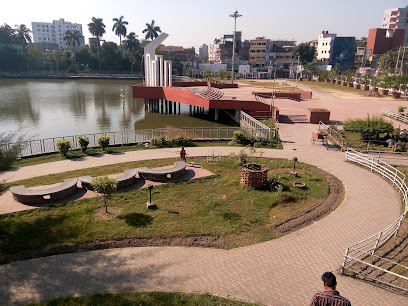
Jatishongho Shishu Park
A cherished green oasis in Khulna, offering a family-friendly recreational space with play areas, lawns, and a vibrant connection to local culture.
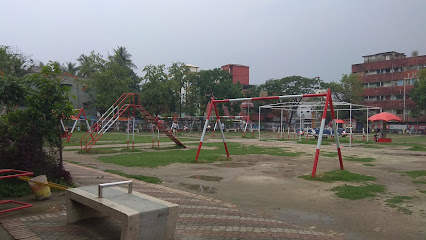
Bonobilash Zoo
Discover diverse wildlife in a tranquil environment at Bonobilash Zoo, a well-maintained family destination near Khulna on the Dhaka-Khulna Highway.
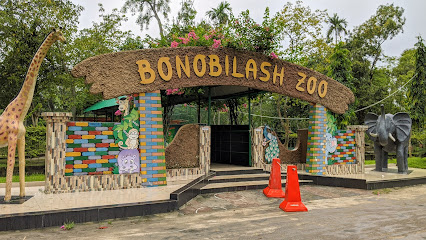
সোনাডাঙ্গা বাস টার্মিনাল জামে মসজিদ
Discover the serene beauty and cultural significance of Khulna's renowned mosque, a spiritual landmark near Sonadanga Bus Terminal.
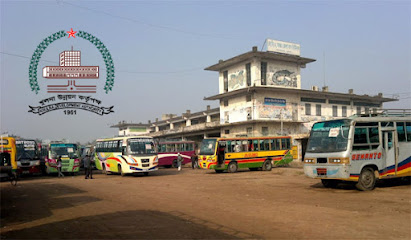
Khan Jahan Ali Bridge
Discover the iconic Khan Jahan Ali Bridge in Khulna: a symbol of connectivity, offering stunning views and a glimpse into the region's rich history.
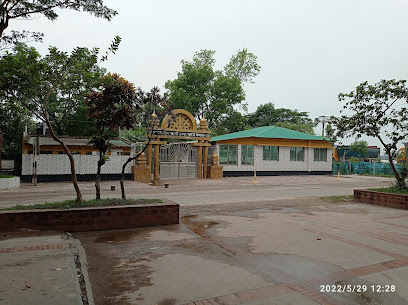
Bangladesh Biman Monument
A landmark in Khulna, the Bangladesh Biman Monument symbolizes the nation's aviation history and progress, offering a glimpse into the city's vibrant culture and aspirations.
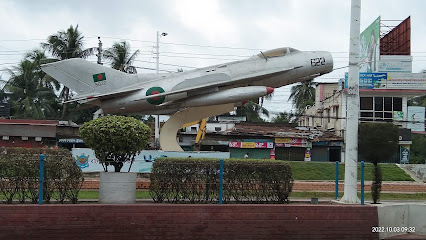
Wonderland Amusement Park
Experience thrilling rides and family fun at Wonderland Amusement Park, Khulna's favorite destination for a memorable day of excitement and joy.
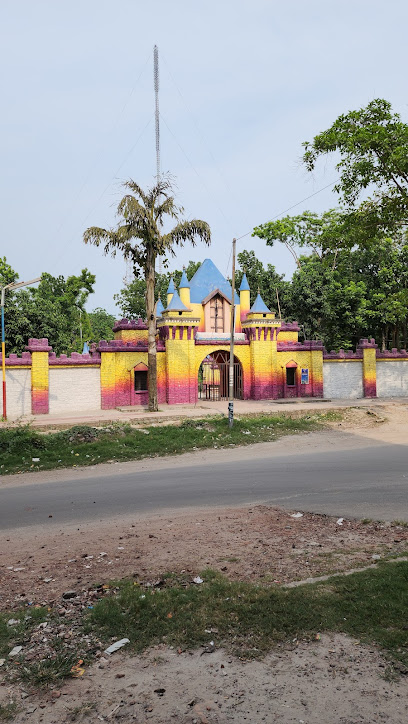
Divisional Museum, Khulna
Explore the Divisional Museum in Khulna for a captivating journey through Bangladesh's rich history and culture, showcasing unique artifacts and local heritage.
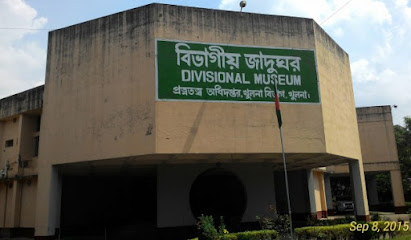
Boyra Bazar Jame Masjid
Discover the serene beauty and rich heritage of Boyra Bazar Jame Masjid, a cultural gem in Khulna, Bangladesh.
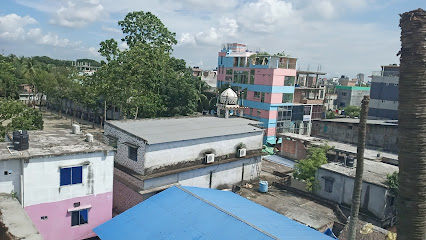
Central Shaheed Minar, Khulna
Discover the poignant beauty of Central Shaheed Minar in Khulna, a memorial park honoring the Bengali language movement and cultural heritage.
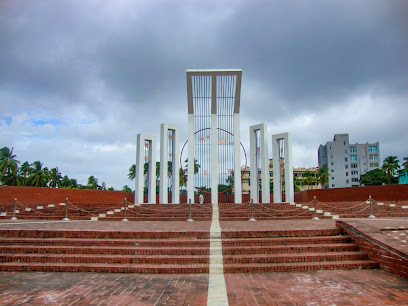
Jatra Flagship Khulna City Centre
Experience the perfect blend of comfort and local charm at Jatra Flagship Khulna City Centre, your ideal home base in Khulna.
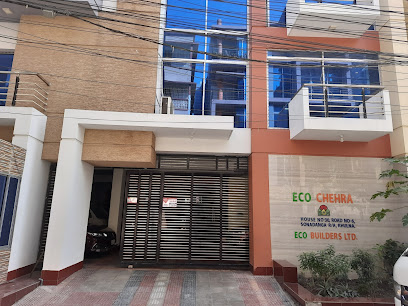
1971 : Genocide-Torture Archive & Museum
Explore the poignant history of the 1971 Liberation War at Khulna's Genocide-Torture Archive & Museum, a powerful testament to resilience, sacrifice, and the enduring spirit of Bangladesh.
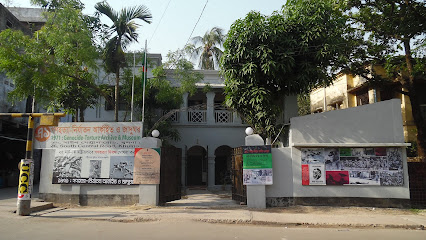
Gollamari Memorial Monument
A somber and inspiring memorial in Khulna, Bangladesh, commemorating the sacrifices of the 1971 Liberation War and honoring the resilience of the Bangladeshi people.
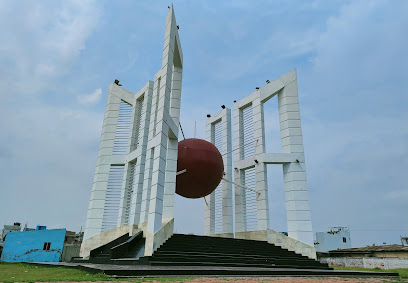
Jahanabad Cantonment Park
Escape to tranquility at Jahanabad Cantonment Park in Khulna, a lush green oasis offering relaxation, recreation, and a vibrant community atmosphere for locals and tourists alike.
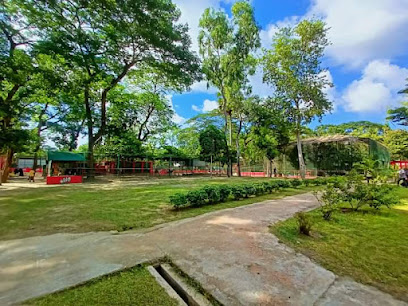
Central Library, Wi-Fi Zone
Khulna's Central Library: Your gateway to knowledge, community, and free Wi-Fi in a serene environment.
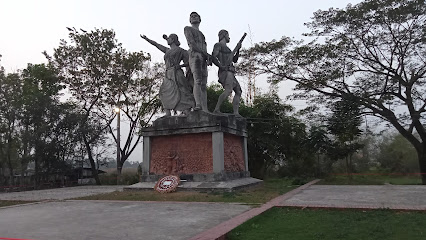
Unmissable attractions to see
Shahid Hadis Park
Discover Khulna's heart at Shahid Hadis Park: a historic landmark offering tranquility, recreation, and a vibrant community atmosphere.
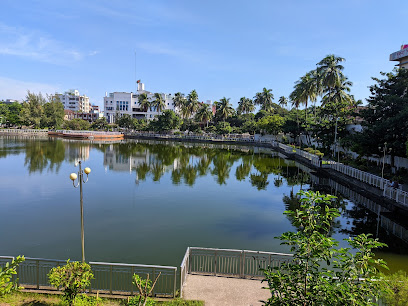
Khan Jahan Ali Dighi
Explore the serene beauty and historical significance of Khan Jahan Ali Dighi, home to revered shrines and ancient crocodiles.
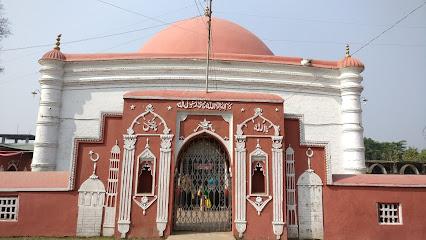
Jatishongho Shishu Park
A family-friendly green oasis in Khulna offering play areas, open spaces, and a vibrant atmosphere for recreation and community events.
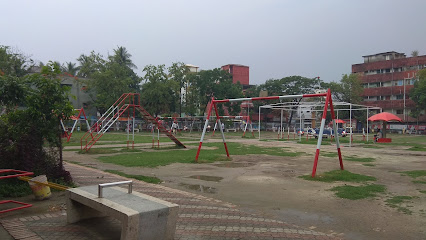
Rupsha Ghat
Experience the vibrant heart of Khulna at Rupsha Ghat, a bustling river port where commerce, culture, and community converge.
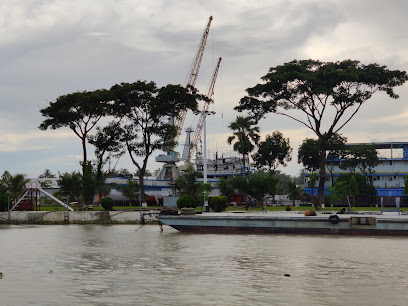
Solar Park
Discover Khulna's Solar Park: a serene escape showcasing sustainable energy, tranquil lakes, and lush greenery in the heart of the city.
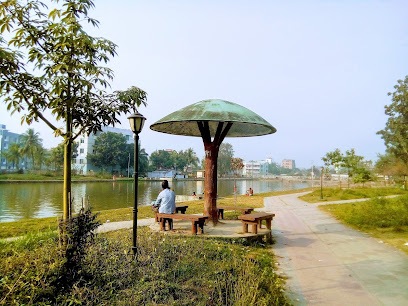
Chandra Mahal Eco Park
Discover nature, culture, and recreation at Chandra Mahal Eco Park, a Taj Mahal-inspired oasis near Khulna, Bangladesh. Open daily, 7:00 am to 6:30 pm.
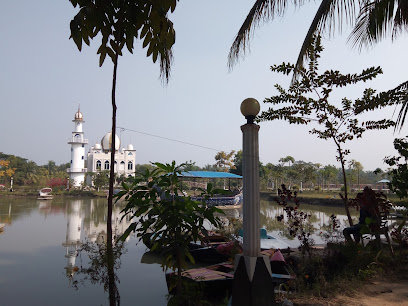
Wonderland Amusement Park
Experience thrilling rides and family fun at Wonderland Amusement Park, Khulna's favorite destination for a memorable day out.
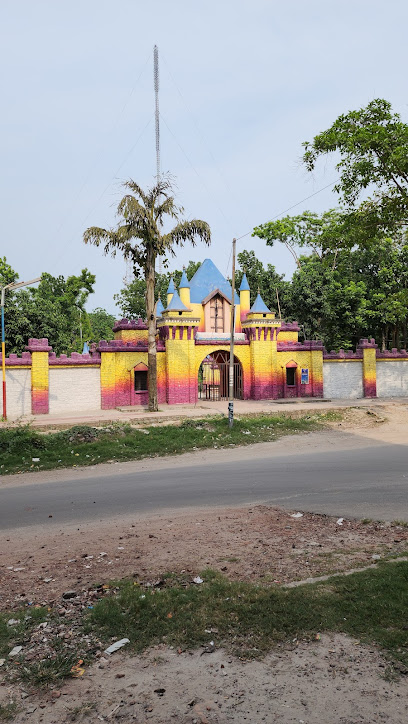
Divisional Museum, Khulna
Discover South Bengal's history at Khulna Divisional Museum: archaeological finds, artifacts & cultural events await!
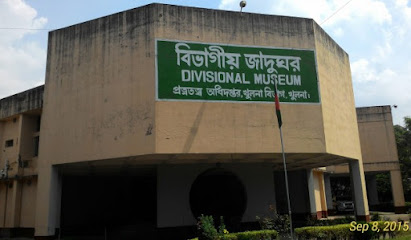
শেখ রাসেল ইকোপার্ক
Discover tranquility at Sheikh Russel Eco Park in Khulna, a green oasis offering natural beauty and a peaceful escape by the Rupsha River.
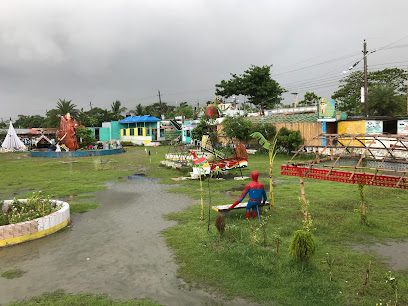
Central Shaheed Minar, Khulna
A solemn memorial in Khulna honoring the heroes of the Bengali Language Movement and the spirit of Bengali nationalism.
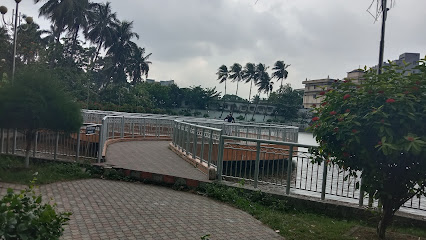
1971 : Genocide-Torture Archive & Museum
Preserving the memory of the 1971 genocide in Bangladesh through artifacts, photos, and survivor stories. A deeply emotional and educational experience.
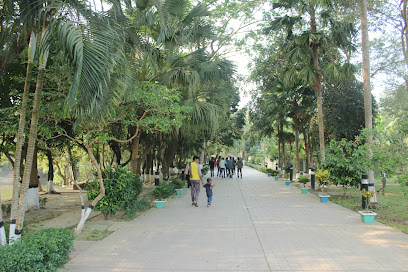
খুলনা নৌ কলোনী শিশু পার্ক
A cherished green space in Khulna's Goalkhali, offering a safe and enjoyable environment for families and children to relax and play.
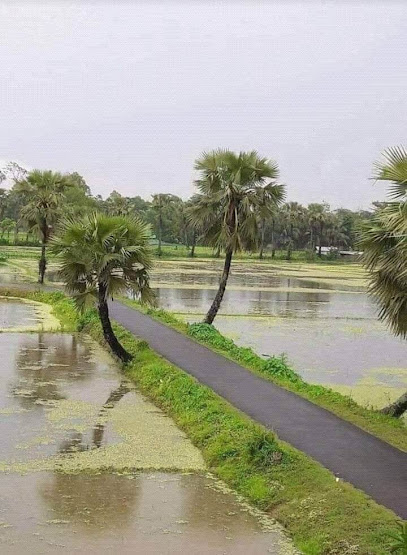
ভবদহ ২১ ভেন্ট স্লুইস গেট
Explore the historic Bhabadaha 21-Vent Sluice Gate, a monumental water management structure in Bangladesh, and learn about the region's struggle with waterlogging.
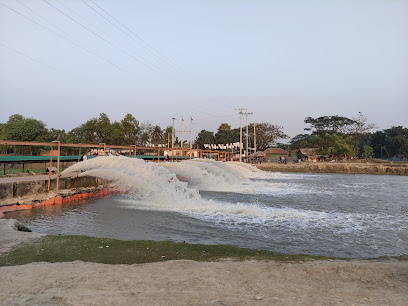
Moyuri Lake View Park
Escape to the tranquility of Moyuri Lake View Park in Khulna, a serene natural retreat perfect for relaxation and recreation.
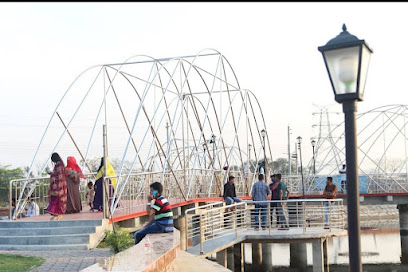
Golok Moni Park
Escape to Khulna's green heart: a tranquil urban oasis with lush greenery, scenic walkways, and a serene atmosphere for relaxation and recreation.
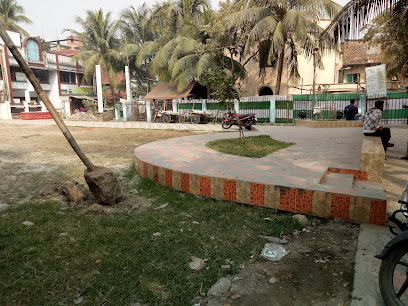
Essential places to dine
Deshi Kitchen
Savor the essence of Bangladesh at Deshi Kitchen—where authentic flavors meet warm hospitality.
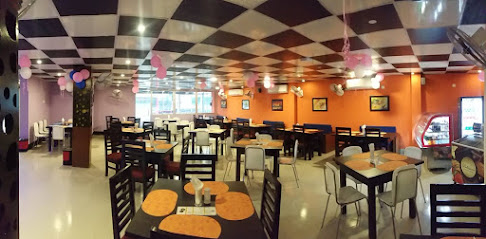
Abbas Hotel
Experience authentic Bangladeshi cuisine at Abbas Hotel in Khulna - where flavor meets affordability in a cozy setting.
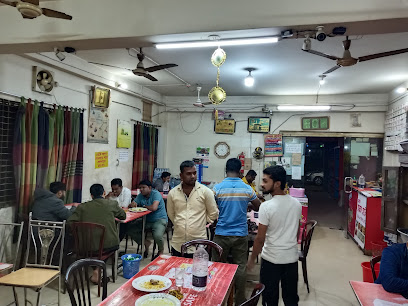
Chinese Palace
Experience authentic Bangladeshi cuisine at Chinese Palace in Khulna – where flavor meets tradition in a cozy setting.
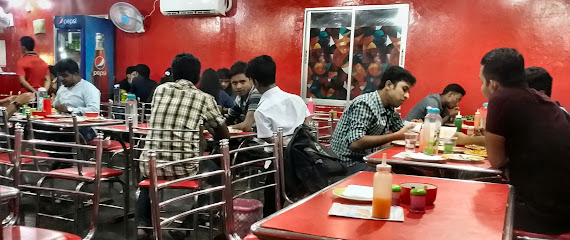
ROVERS CAFE
Discover Rovers Cafe in Khulna – where authentic Bangladeshi flavors meet global cuisine in a cozy setting.
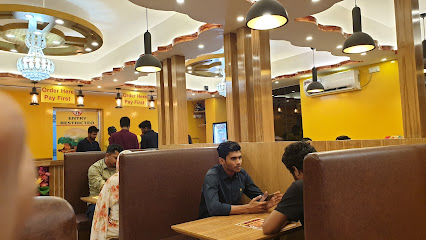
Bistro C
Experience the vibrant flavors of Khulna at Bistro C – where local ingredients meet culinary creativity in a warm and welcoming atmosphere.
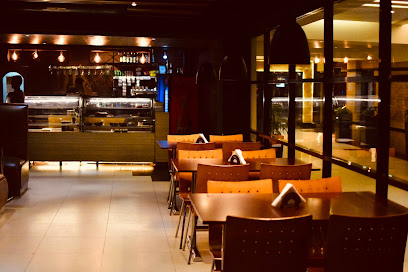
Guhaa Restaurant
Discover the fusion of flavors at Guhaa Restaurant in Khulna—where fast food meets international cuisine in a vibrant setting.
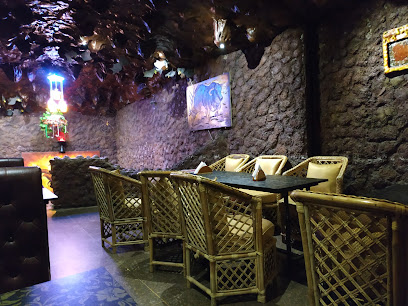
New Kaifeng Chinese Restaurant
Discover the essence of authentic Chinese cuisine at New Kaifeng Restaurant in Khulna - where flavors meet tradition.
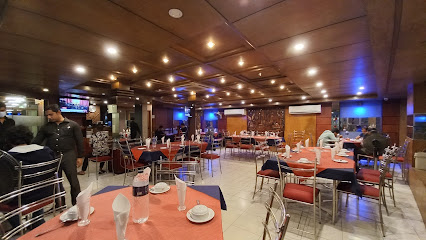
Pizzaology
Savor the authentic taste of Italy at Pizzaology in Khulna - where every slice tells a delicious story.
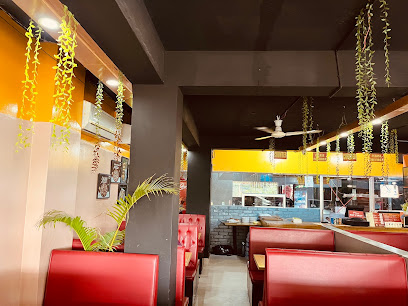
Al-Arafa Restaurant
Experience authentic Bangladeshi cuisine at Al-Arafa Restaurant in Khulna - where flavor meets tradition.
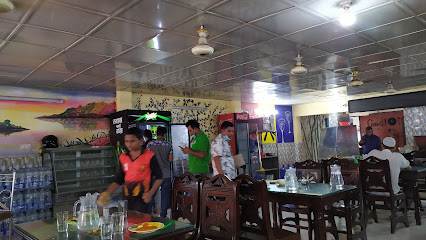
4Cheez
Explore the rich flavors of cheesy delights at 4Cheez in Khulna - A culinary destination where every dish tells a story.
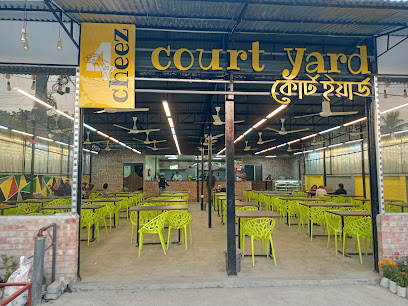
Firefly Restaurant
Discover delightful flavors at Firefly Restaurant in Khulna - where local ingredients meet global cuisine in a cozy setting.
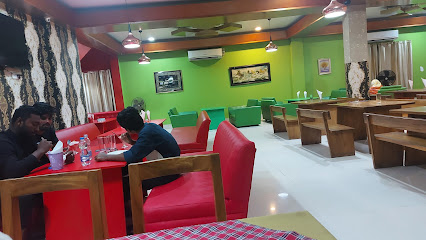
হোটেল আল-জামিল
Experience authentic Bangladeshi barbecue at Hotel Al-Jamil in Khulna - a culinary gem for food lovers.
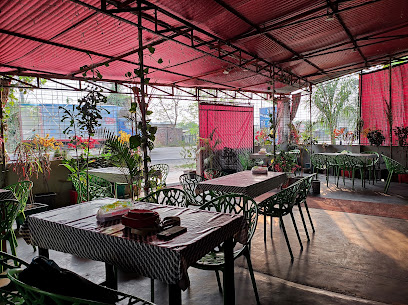
Food master
Experience the fusion of authentic Chinese flavors and fast food convenience at Food Master in Khulna.
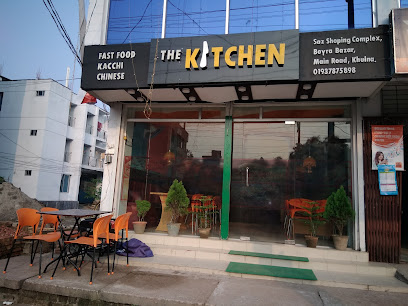
Deejaj
Experience the best of Bangladeshi cuisine at Deejaj in Khulna – where tradition meets taste.
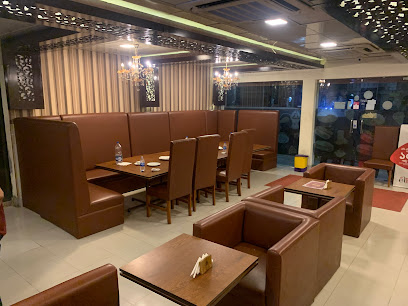
Eatery
Discover authentic flavors at The Eatery in Khulna - where delicious meals meet inviting ambiance.
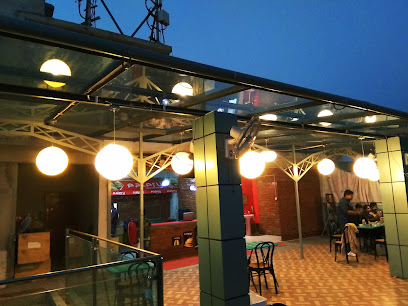
Markets, malls and hidden boutiques
Aarong Khulna
Discover the vibrant world of Bangladeshi fashion at Aarong Khulna, where tradition meets modernity in every exquisite piece.
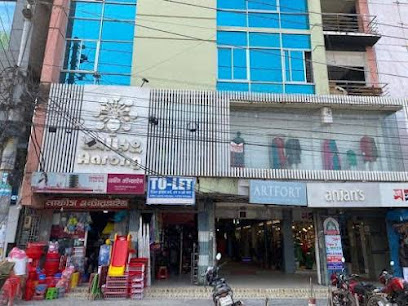
Khulna Shopping Complex
Discover the lively Khulna Shopping Complex, where shopping meets culture in the heart of Bangladesh's vibrant city.
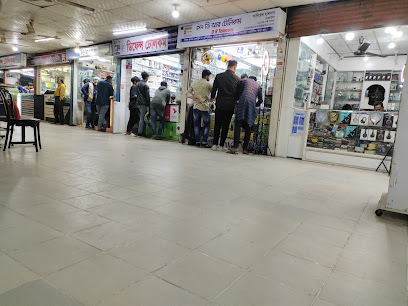
NABARUPA KHULNA-2
Discover the vibrant fashion scene at NABARUPA KHULNA-2 in Khulna, where local culture meets contemporary style for every shopper's delight.
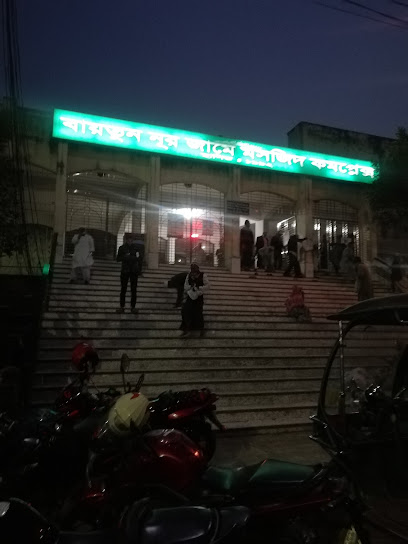
Easy Fashion Ltd. Khulna Branch
Explore the latest men's fashion trends at Easy Fashion Ltd. in Khulna – where style meets quality and affordability.
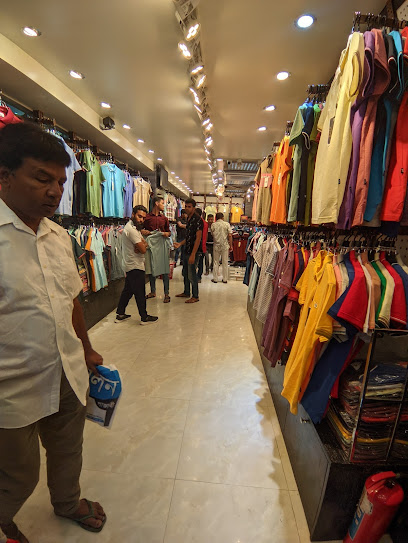
Yellow, Khulna
Explore the vibrant world of fashion at Yellow in Khulna, where trendy styles meet local flair in a chic shopping experience.
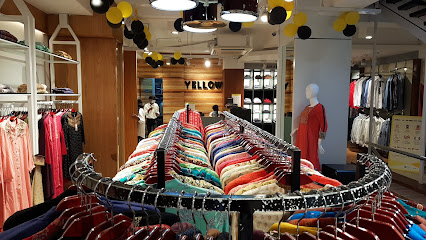
Nabarupa Khulna
Explore Nabarupa Khulna, a vibrant fashion accessories store offering unique jewelry and bags that reflect the essence of Bangladeshi craftsmanship.
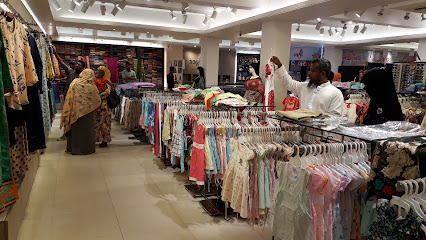
EASY Fashions Shib Bari More
Discover the vibrant fashion scene at EASY Fashions in Khulna, where style meets affordability in a lively shopping environment.
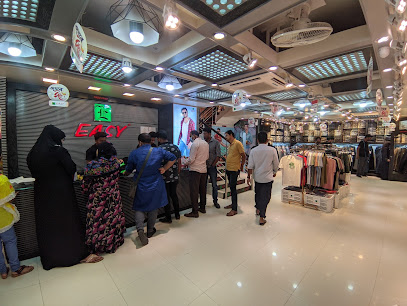
Khulna Market
Discover the vibrant Khulna Market, a must-visit destination for natural goods, local flavors, and an unforgettable cultural experience.
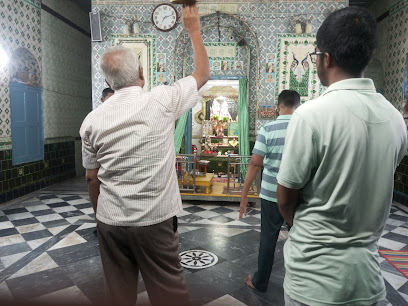
QuniQs Fashion & Digital Printing
Discover trendy youth fashion and custom print services at QuniQs Fashion & Digital Printing in Khulna, where creativity meets style.
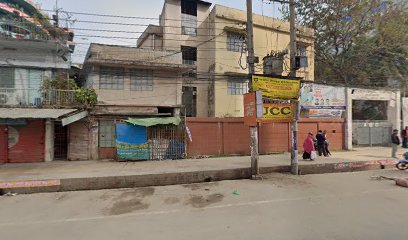
BLAND
Discover the latest trends and unique styles at BLAND, Khulna's premier clothing store for fashion enthusiasts and savvy shoppers.
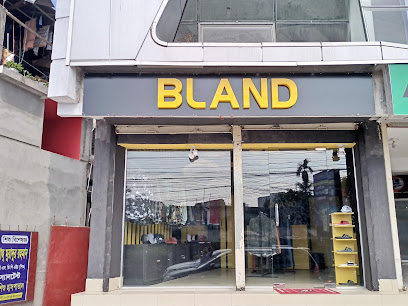
Camera Hut
Explore Camera Hut in Khulna for top-notch photography gear and immerse yourself in the vibrant local market culture.
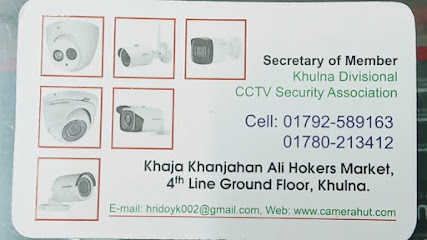
The Raymond Shop
Explore The Raymond Shop in Khulna for an exquisite selection of fabrics, blending tradition and modernity in every thread.
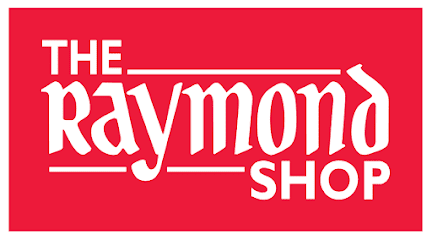
Allahr Dan Store
Discover the charm of Khulna at Allahr Dan Store, where local flavors and unique souvenirs await every traveler.

Tanjim Fashion
Explore the vibrant clothing scene at Tanjim Fashion in Khulna, offering trendy outfits that blend modern style with traditional flair.

আশিক স্টোর
Experience the local charm at Ashik Store, your go-to general store in Khulna for unique finds and everyday essentials.
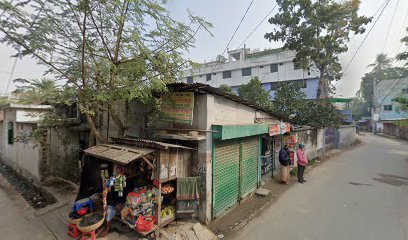
Essential bars & hidden hideouts
Tiger Garden Int. Hotel
Discover the elegance of Tiger Garden International Hotel, a perfect blend of luxury, fine dining, and stunning event venues in Khulna.
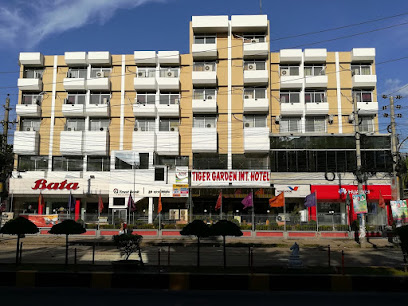
Deshi Kitchen
Experience the essence of Bangladeshi cuisine at Deshi Kitchen, a must-visit restaurant in Khulna for all food lovers.
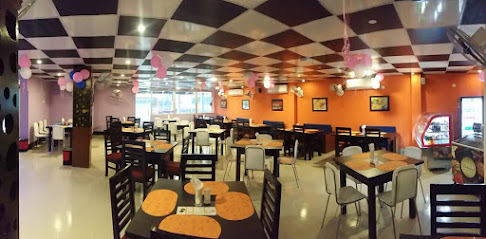
Chinese Palace
Savor authentic Bangladeshi cuisine at Chinese Palace in Khulna, where every dish tells a story of local flavors and culinary tradition.
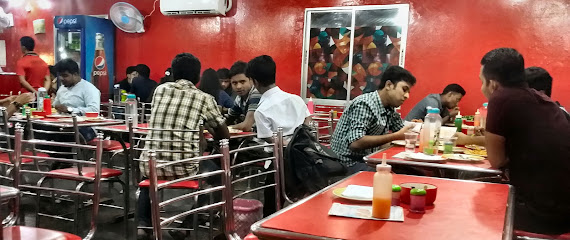
ROVERS CAFE
Discover the delightful flavors of Khulna at Rovers Cafe, where every dish tells a story and satisfaction is guaranteed.
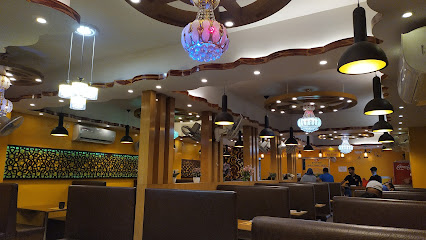
Gesco Kabab
Experience the authentic taste of Bangladesh at Gesco Kabab, Khulna's premier destination for delicious kebabs and local cuisine.
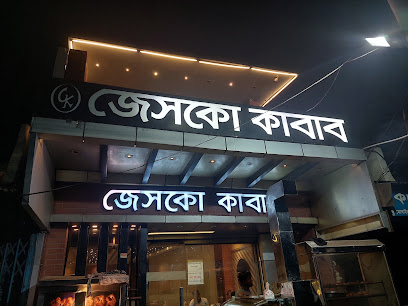
Bistro C
Discover the flavors of Khulna at Bistro C, where local dishes meet international cuisine in a warm and inviting atmosphere.
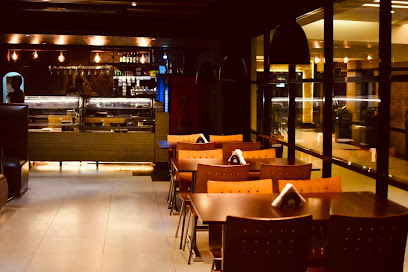
Dhaba @ Road Side
Savor the authentic taste of Bangladesh at Dhaba @ Road Side, where traditional biriyani meets modern hospitality in Khulna.
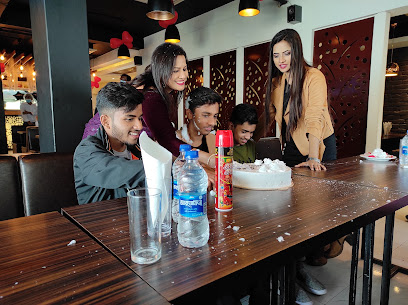
4Cheez
Discover a unique dining experience at 4Cheez in Khulna, where cheese takes center stage in a delightful array of dishes.
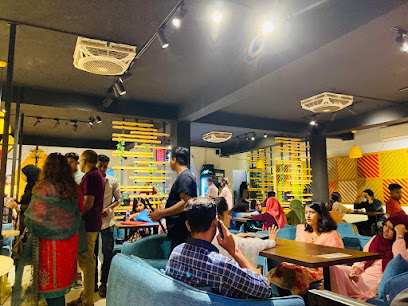
Firefly Restaurant
Discover the vibrant culinary scene of Khulna at Firefly Restaurant, where local flavors meet international flair in a cozy setting.
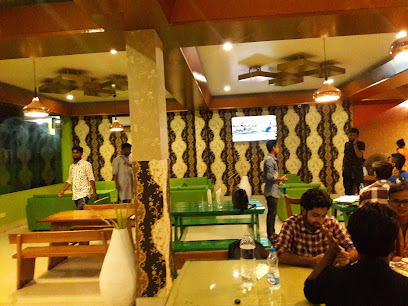
হোটেল আল-জামিল
Experience the authentic flavors of Bangladesh at Hotel Al-Jamil, where barbecue and grilled dishes meet warm hospitality.
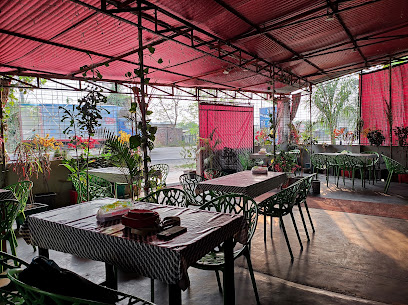
Coffee Glory, Khulna
Discover the rich flavors of coffee and delectable treats at Coffee Glory in Khulna, a must-visit café for travelers seeking a delightful break.
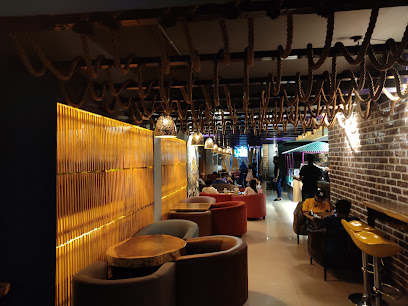
District Bar Association, Khulna
Explore the District Bar Association of Khulna, a pivotal institution for the legal community and a gateway to understanding Bangladesh's legal framework.
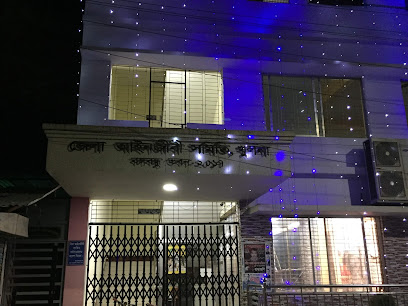
Wendy's food Court
Indulge in the flavors of Wendy's Food Court in Khulna, where delicious fast food meets a vibrant dining experience.
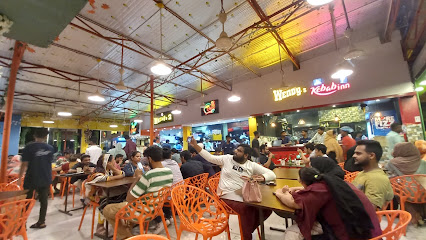
Eatery
Discover a culinary gem in Khulna's Ferdous Plaza, where local flavors meet international cuisine for a delightful dining experience.
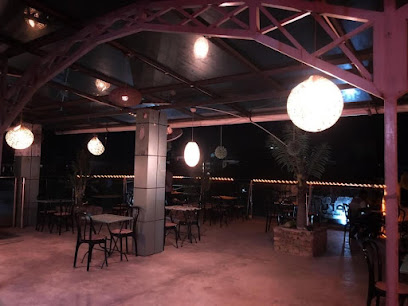
Local Phrases
-
- Helloনমস্কার
[nomoskar] - Goodbyeবিদায়
[bidae] - Yesহ্যাঁ
[ha] - Noনা
[na] - Please/You're welcomeঅনুগ্রহ করে / স্বাগতম
[onugroh kore / shagotom] - Thank youধন্যবাদ
[dhonobad] - Excuse me/Sorryদুঃখিত
[dukkhit] - How are you?আপনি কেমন আছেন?
[apni kemon achen?] - Fine. And you?ভাল। আর আপনি?
[bhal. ar apni?] - Do you speak English?আপনি ইংলিশ বলতে পারেন?
[apni English bolte paren?] - I don't understandআমি বুঝতে পারি না
[ami bujhte pari na]
- Helloনমস্কার
-
- I'd like to see the menu, pleaseদয়া করে মেনু দেখাবেন
[doya kore menu dekhaben] - I don't eat meatআমি মাংস খাই না
[ami mangsh khai na] - Cheers!চিয়ারস!
[cheers!] - I would like to pay, pleaseদয়া করে আমি দিতে চাই
[doya kore ami dite chai]
- I'd like to see the menu, pleaseদয়া করে মেনু দেখাবেন
-
- Help!মাদদ!
[madad!] - Go away!চলে যাও!
[chole jao!] - Call the Police!পুলিশকে কল করুন!
[polishke kol korun!] - Call a doctor!ডাক্তারকে কল করুন!
[daktarke kol korun!] - I'm lostআমি হারানো গেছি
[ami harano gesi] - I'm illআমি অসুস্থ
[ami osustho]
- Help!মাদদ!
-
- I'd like to buy...আমি কিনতে চাই...
[ami kinte chai...] - I'm just lookingআমি শুধু দেখছি
[ami shudhu dekhchi] - How much is it?এটা কত টাকা?
[eta kot taka?] - That's too expensiveএটা খুব ব্যয়সূত্র
[eta khub boshosro] - Can you lower the price?আপনি দাম কমাতে পারেন?
[apni dam kamate paren?]
- I'd like to buy...আমি কিনতে চাই...
-
- What time is it?এখানে কত সময়?
[ekhane kot shomoy?] - It's one o'clockএটা একটা
[eta ekta] - Half past (10)দশের অর্ধেক
[dasher ordhek] - Morningসকাল
[shokal] - Afternoonদুপুর
[dupur] - Eveningসন্ধ্যা
[shondhya] - Yesterdayগতকাল
[gotkal] - Todayআজ
[aj] - Tomorrowআগামীকাল
[agamikal] - 1এক
[ek] - 2দুই
[dui] - 3তিন
[tin] - 4চার
[char] - 5পাঁচ
[pach] - 6ছয়
[chhoy] - 7সাত
[shat] - 8আট
[at] - 9নয়
[noy] - 10দশ
[dosh]
- What time is it?এখানে কত সময়?
-
- Where's a/the...?...কোথায়?
[...kothay?] - What's the address?ঠিকানাটি কি?
[thikanati ki?] - Can you show me (on the map)?আপনি আমাকে দেখাতে পারেন?
[apni amake dekhate paren?] - When's the next (bus)?পরবর্তী (বাস) কখন?
[porborti (bus) kohon?] - A ticket (to ....)একটি টিকেট (... পর্যন্ত)
[ekti ticket (... porjonto)]
- Where's a/the...?...কোথায়?
History of Khulna
-
Khulna, located in the southwestern part of Bangladesh, has a rich history dating back to ancient times. The area was originally inhabited by various indigenous communities, including the Buno and the Munda, who thrived on the fertile lands by engaging in agriculture and fishing. The early settlements were influenced by the Ganges and Brahmaputra river systems, which provided both sustenance and a means of transportation.
-
During the medieval period, Khulna came under the rule of various Muslim sultans and chiefs. The region saw an influx of Islamic culture and architecture, with the construction of mosques, madrasas, and other religious institutions. This period also marked the beginning of Khulna's integration into the broader Bengal Sultanate, which facilitated trade and cultural exchanges.
-
The arrival of the British East India Company in the 18th century significantly altered Khulna's social and economic landscape. The British established administrative centers and introduced modern infrastructure, including railways and ports. Khulna's strategic location made it an important hub for trade, particularly in jute and salt industries. The colonial period also saw the construction of significant buildings, including the Khulna Circuit House and the Khulna Divisional Museum.
-
Khulna played a pivotal role during Bangladesh's Language Movement in the 1950s and the Liberation War in 1971. The city was a center of resistance against the imposition of Urdu as the national language, which culminated in the historic 1952 protests. During the Liberation War, Khulna was a crucial battleground, with many local residents participating in the struggle for independence. The city's liberation from Pakistani forces on December 17, 1971, is commemorated annually.
-
Since gaining independence, Khulna has undergone significant urbanization and development. It has emerged as a key industrial and commercial center, with thriving shipbuilding, seafood processing, and textile industries. The city is also home to several universities and research institutions, contributing to its reputation as an educational hub. Modern Khulna is a blend of historical heritage and contemporary growth, attracting both tourists and investors.
-
Khulna boasts a rich cultural heritage, reflected in its diverse festivals and traditions. The city celebrates various religious and cultural events, including Durga Puja, Eid, and the traditional Bengali New Year (Pohela Boishakh). The Sundarbans, a UNESCO World Heritage site and the world's largest mangrove forest, is located nearby, offering a unique ecological and cultural experience. Art, music, and dance are integral to Khulna's cultural identity, with numerous local artists and performers contributing to the vibrant cultural scene.
Khulna Essentials
-
Khulna is well connected by road, rail, and water. The nearest international airport is Hazrat Shahjalal International Airport in Dhaka. From Dhaka, you can take a domestic flight to Jessore Airport, which is about 70 kilometers from Khulna. From Jessore, you can hire a taxi or take a bus to Khulna. There are also direct bus services from Dhaka to Khulna, which take about 7-8 hours. Additionally, you can travel by train from Dhaka to Khulna, which offers a scenic and comfortable journey.
-
Within Khulna, you can use a variety of transportation options. Cycle rickshaws and auto-rickshaws are common for short distances. For longer journeys within the city or to nearby areas, you can hire taxis or use ride-sharing services. Public buses are available but might be crowded. Renting a car with a driver is another convenient option for exploring the region.
-
The official currency in Bangladesh is the Bangladeshi Taka (BDT). Credit cards are accepted in major hotels, restaurants, and shops, but it's advisable to carry cash, especially in smaller establishments and rural areas. ATMs are widely available in Khulna, so withdrawing cash shouldn't be an issue. It's a good idea to have some smaller denominations for day-to-day expenses.
-
Khulna is generally safe for tourists, but it's important to stay vigilant. Avoid walking alone at night in unfamiliar areas. High-crime areas targeting tourists are uncommon, but it's always best to keep an eye on your belongings in crowded places like markets and bus stations. Stick to well-lit and populated areas after dark.
-
In case of emergency, dial 999 for police, fire, or medical assistance. Khulna Medical College Hospital is the primary medical facility in the city. It's advisable to have travel insurance that covers medical emergencies. For minor health issues, pharmacies are available throughout the city where you can purchase over-the-counter medications.
-
Fashion: Do dress modestly, especially when visiting religious sites. Avoid wearing revealing clothing. Religion: Do respect local customs and traditions. Always cover your head when entering mosques and other religious places. Public Transport: Do be respectful and give up your seat to elderly passengers. Don't eat or drink on public transport. Greetings: Do greet people with a handshake or a slight bow of the head. Using 'As-Salaam-Alaikum' is a respectful greeting. Eating & Drinking: Do try local delicacies and accept food offerings graciously. Don't refuse hospitality, as it is considered impolite.
-
To experience Khulna like a local, visit the local markets such as the Rupsha Fish Market, where you can buy fresh produce and traditional goods. Engage with locals, as they are often friendly and willing to share stories about the city's history and culture. Don't miss visiting the Sundarbans, the largest mangrove forest in the world. For a unique experience, take a boat ride on the Rupsha River, offering beautiful views of the city and its surroundings.
Trending Landmark in Khulna
-
Shahid Hadis Park
-
Jatishongho Shishu Park
-
Bonobilash Zoo
-
সোনাডাঙ্গা বাস টার্মিনাল জামে মসজিদ
-
Khan Jahan Ali Bridge
-
Bangladesh Biman Monument
-
Wonderland Amusement Park
-
Divisional Museum, Khulna
-
Boyra Bazar Jame Masjid
-
Central Shaheed Minar, Khulna
-
Jatra Flagship Khulna City Centre
-
1971 : Genocide-Torture Archive & Museum
-
Gollamari Memorial Monument
-
Jahanabad Cantonment Park
-
Central Library, Wi-Fi Zone
Nearby Cities to Khulna
-
Things To Do in Jessore
-
Things To Do in Barisal
-
Things To Do in Kolkata
-
Things To Do in Dhaka
-
Things To Do in Comilla
-
Things To Do in Rajshahi
-
Things To Do in Agartala
-
Things To Do in Chittagong
-
Things To Do in Cox's Bazar
-
Things To Do in Rangpur
-
Things To Do in Sylhet
-
Things To Do in Aizawl
-
Things To Do in Shillong
-
Things To Do in Guwahati
-
Things To Do in Ranchi












